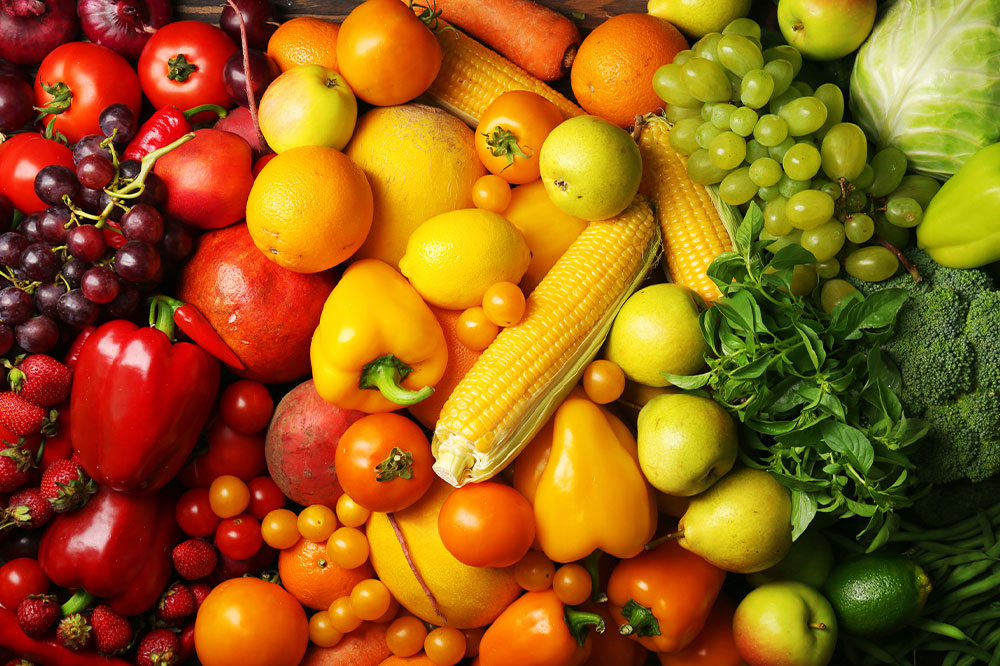
Causes of excessive sweating and foods to prevent it
Sweating is a completely normal phenomenon. You may sweat excessively when you are exercising or when it’s too hot outside. It’s the body’s action to cool itself down. But sometimes, it could be caused because of an underlying condition. Understanding the common causes of excessive sweating can help you navigate the uncertainty of a new diagnosis. While there are medications, there are foods that could alleviate its symptoms. Read to know more.
Causes of excessive sweating
Primary focal hyperhidrosis
Primary focal hyperhidrosis causes excessive sweating in people even when they are not doing any physical activity. Typically one or two parts of the body will sweat excessively, like the hands, underarms, feet, or groin. Hyperhidrosis can make the skin soft, white, flaky, and prone to skin infections like jock itch. It can result from genetic causes.
Hyperthyroidism
The body produces a type of hormone called thyroxine that regulates metabolism, heart rate, and body temperature. Hyperthyroidism occurs when too much thyroxine is produced, disrupting normal hormone levels. A few symptoms of this condition include excessive sweating, heart palpitations, and sudden weight loss.
Food and emotion
The consumption of certain types of food can trigger excessive sweating. Such instances of sweating are known as gustatory sweating. Spicy foods, caffeinated drinks such as soda, tea, coffee, and alcoholic beverages can aggravate its symptoms. Emotions like anger, fear, embarrassment, and anxiety can also make people sweat excessively, which is normal. Sweating stops once the emotions and food habits are under control.
Diabetes
Diabetes results in low blood sugar, and one of its symptoms is excessive sweating. Prolonged low blood sugar levels can damage sweat glands, leading to a condition called neuropathy. This causes too little or too much sweating. These patients may also suffer from gustatory sweating caused by food consumption.
Perimenopause
Perimenopause is the period when a woman stops having menstrual cycles and is about to enter menopause. During this time, the body sweats excessively because of irregular hormone levels. There is also a shift in estrogen levels, causing the body temperature to rise, resulting in hot flashes. This is a completely normal reason for excessive sweating and typically stops on its own.
Sweat-reducing foods
Watermelon
One of the best ways to reduce excessive sweating is by keeping your body hydrated, so it cools down. Watermelon contains approximately 92% water, so add a few slices to your meals. Other fruits and vegetables that contain similar water content are cucumbers, lettuce, strawberry, and courgettes.
Low-fat or skim milk
Calcium regulates body temperature and decreases excessive sweating. Milk is a rich source of calcium, but opt for low or skim milk since full fat can take longer for your body to digest. Other sources of calcium include cheddar cheese, eggs, low-fat yogurt, flax seeds, baked beans, almonds, kale, collard greens, and sesame seeds.
Olive oil
Olive oil is rich in antioxidants and is easier for the body to digest. This helps reduce excessive sweating since the digestive metabolism does not have to overwork. Olive oil also improves metabolism, maintains blood pressure, and lowers cholesterol levels.
Oats
Oats are full of fiber and contain a low quantity of fat, making them easily digestible food. This means the digestive system does not have to work as much, resulting in little or no sweat. Replace processed foods such as white bread, white rice with brown rice, brown bread, whole-wheat pasta, millet, barley, and buckwheat.
Salmon
Salmon contains all the right vitamin B complex to keep the body healthy. It keeps the nervous system healthy, aids digestion, and boosts the immune system, reducing excessive sweating. Other foods rich in vitamin B are beef, eggs, leafy vegetables, and legumes.
Almonds
People who sweat excessively typically have low magnesium levels in the body. Almonds are a great source of this mineral. It not only improves digestion but also boosts the immune system by increasing metabolism. Some other examples of magnesium-rich foods are spinach, soy, pumpkin seeds, cashews, and dark chocolate.
Bananas
Bananas are full of potassium and easy for the body to digest. This fruit also contains magnesium and vitamin B6, two essential things that help reduce sweating. Bananas are rich in fiber and contain zero bad fats, making them a healthy snack.
Green tea
Green tea is known to have a calming effect and helps keep the nervous system calm. It also contains a fair amount of antioxidants. Replace caffeinated coffee with decaffeinated green tea every morning to keep the body cool.




